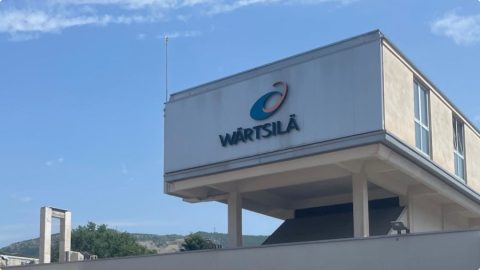LTG Cargo leverages RCP to navigate a new reality and drive efficiency

As European rail networks have faced unprecedented disruption in recent years, the ability to innovate has become increasingly important to meet changing market dynamics. Over the last four years, LTG Cargo, the freight transportation company of Lithuanian Railways Group (LTG), started to actively expand its business to Northern and Western Europe as well as to embark on a journey to enhance its operational efficiency through a combination of technology and human resource development.
All sector has been shaken by Russia’s war in Ukraine. From the beginning, LTG Cargo has taken steps to help both the company itself and its customers to adapt to the new reality. The company has started implementing a plan aimed at increasing operational efficiency, reducing incurred costs, and continuing active diversification of operations towards the West. To meet the changing and fast-developing reality in the logistics business, LTG Cargo has accelerated existing plans for digital transformation and restructured day-to-day operations.
“We are in the midst of a strategic organizational shift,” Marijus Jankauskas, operational efficiency manager at LTG Cargo explains, “This is a deliberate phase where we’re investing in people to catalyse unprecedented advancements in process efficiency and service reliability.” One key outcome of this change process has been centralisation of operations to a single operational centre. Whereas LTG Cargo previously had separate regional planning processes, a new national centre is now responsible for all cargo planning for two weeks ahead as well as managing any daily delays or disruptions.
LTG Cargo implemented Ab Ovo’s Rail Cargo Planning
To handle the increased flow of data, LTG Cargo has implemented Rail Cargo Planning (RCP), an integrated resource planning system developed by global planning and optimisation solution provider Ab Ovo. The first contacts with Ab Ovo were made in 2018 and their rail expertise and guidance were pivotal for the design of the business model used in the operation centre. LTG awarded the system contract to Ab Ovo in 2020 after a successfully conducted EU tender. The solution from Ab Ovo was delivered over a 1.5-year implementation and change management project with configuration of the solution and training of the LTG Cargo staff. Having seen early benefits from the RCP system, thanks to the ability to plan and allocate resources more effectively and with short notice, LTG has since placed the system at the core of several key planning processes.
“We are transforming our planning and order management processes, and Ab Ovo’s Rail Cargo Planning system plays a role in the planning aspect,” Jankauskas notes, “The system has proven its worth already in the early phase in 2022 where the rail market experienced huge changes demanding fast adaptations in the planning. This aligns with LTG Cargo’s broader strategy of serving as a regional transportation backbone and focusing on creating value for our customers.” Built on the DELMIA Quintiq supply chain planning and optimization (SCP&O) platform from Dassault Systèmes, the RCP system offers decision support, activity as well as KPI-based planning, real-time solvers, and scenario management.
“RCP is a solution that uses real-time and historical data as input from management systems such as order management, fleet management, time schedules, or other relevant data sources,” Håkan Franzén, Managing Director, Ab Ovo Nordic, explains. “With predictive analytics and rail-specific algorithms, the solution presents planners with the optimum and most efficient use of valuable resources, whether these are people, rolling stock or other assets. It is hugely important that the planners always are in control and our Rail Cargo Planning solution gives them precisely this – with all needed data in real-time, intuitive user interface and fully transparent AI.”
LTG’s digitisation journey
For LTG Cargo, systems such as RCP are all part of a longer-term digitization journey designed to deliver greater automation and efficiency. “We look at it from a perspective of Business Process Automation,” Jankauskas comments, “We are heavily invested in this as a strategic technology – digitization is the first step, optimization the second step and full automation is the final one. It is an iterative process with no shortcuts as cutting out any steps would only lead to inefficiency.”
In 2021, LTG announced a multi-billion euro investment for the modernization and development of the Lithuanian railway network in connection with the Rail Baltica project, which includes electrification of key segments of track. This is set to drive an increased roll-out of new electric locomotives, for which LTG Cargo invested 100 million euros over the summer. While this may bring some challenges it also provides a range of opportunities for cargo planning as this infrastructure will give access to a new level of detail on movements.
Noting that LTG Cargo already has substantial plans for new rolling stock investment, Jankauskas adds that “RCP plays a pivotal role in shaping the scale of our rolling stock investments, thanks specifically to the data and the process visibility/transparency it provides. Digitisation further enriches this with a wealth of often-undervalued metadata, which is invaluable for business process automation and even product development,”, Jankauskas concludes.






